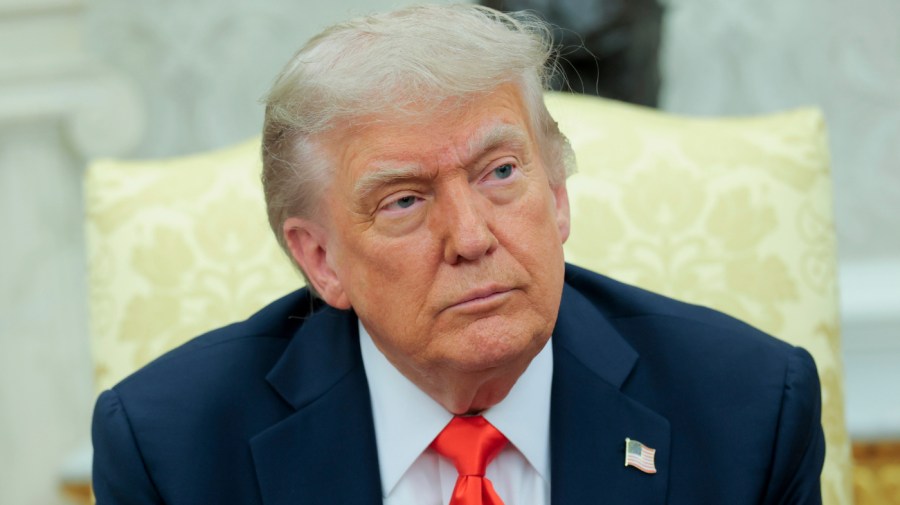Federal appeals court rejects Trump’s emergency tariffs

A federal appeals court on Friday rejected President Trump’s assertion that emergency powers justify his worldwide tariffs, a blow to his efforts to refashion global trade.
In a 7-4 decision, the U.S. Court of Appeals for the Federal Circuit affirmed a lower court’s ruling that the tariffs were not authorized by the statute Trump cited to justify them.
The International Emergency Economic Powers Act (IEEPA) authorizes the president to issue certain economic sanctions to counter an “unusual and extraordinary threat” in an emergency, but it does not permit the president’s sweeping moves, the court ruled.
“Because we agree that IEEPA’s grant of presidential authority to ‘regulate’ imports does not authorize the tariffs imposed by the Executive Orders, we affirm,” the majority wrote.
The ruling does not take effect immediately, as the court withheld the mandate for its decision until Oct. 14, so the administration can appeal to the Supreme Court.
Trump, in a Truth Social post reacting to the ruling, emphasized that all tariffs are still in place, which he said a “Highly Partisan Appeals Court incorrectly” decided. He called tariffs the “best tool” to help workers and support companies in producing American products, acknowledging the proximity to Labor Day weekend.
“If allowed to stand, this Decision would literally destroy the United States of America,” the president said.
The majority — one Republican-appointed judge and six Democratic-appointed judges — said that Trump’s use of tariffs amounts to a decision of vast economic and political significance, meaning the government must “point to clear congressional authorization” for its interpretation of IEEPA.
However, the judges discerned “no clear congressional authorization” for levies of the “magnitude” of those that Trump imposed, they said.
“Reading the phrase ‘regulate … importation’ to include imposing these tariffs is ‘a wafer-thin reed on which to rest such sweeping power,’” the majority wrote.
Judge Richard Taranto, appointed by former President Obama, was joined in dissent by three other judges, another Obama appointee and two appointees of former President George W. Bush.
“We conclude that IEEPA’s authorization of presidential action in this realm is not an unconstitutional delegation of legislative authority under the Supreme Court’s decisions, which have upheld broad grants of authority, including tariffing authority, in this foreign-affairs-related area,” Taranto wrote for the dissenters.
He argued that IEEPA “embodies an eyes-open congressional grant of broad emergency authority” in the realm of foreign affairs, remarking that it’s not a surprise its authorities extend beyond those available under nonemergency laws.
By tying IEEPA’s authority to a requirement to keep Congress looped in with the executive’s decisionmaking, the legislative branch “confirmed the understood breadth,” he said.
Trump is the first president to have attempted to impose tariffs by invoking IEEPA, citing the emergency law in February to announce levies on Canada, China and Mexico, and pointing to the fentanyl crisis.
Then, in April, he called an emergency over trade deficits a reason to expand that to a 10 percent global baseline tariff, with higher rates for some countries — a move he deemed “Liberation Day.”
Five small businesses and a dozen Democratic-led states filed suit. The U.S. Court of International Trade invalidated the tariffs in May, though they have remained in effect as the mid-level court weighed the administration’s appeal.
White House spokesman Kush Desai said in a statement that Trump “lawfully exercised” the tariff powers Congress gave him to defend the country’s national and economic security from foreign threats, reiterating the president’s emphasis that the tariffs remain in effect.
“We look forward to ultimate victory on this matter,” he said.
Updated at 7:33 p.m. EDT